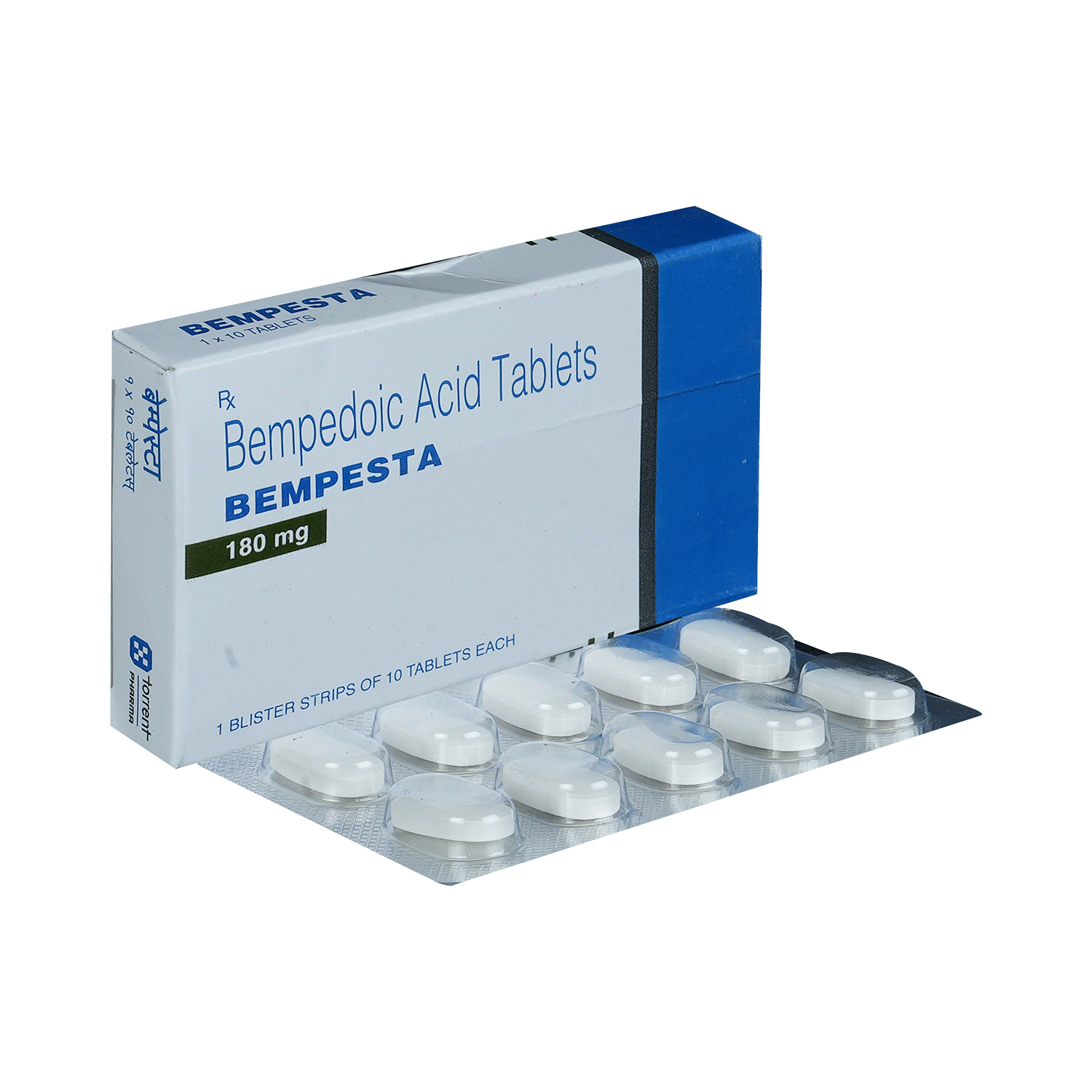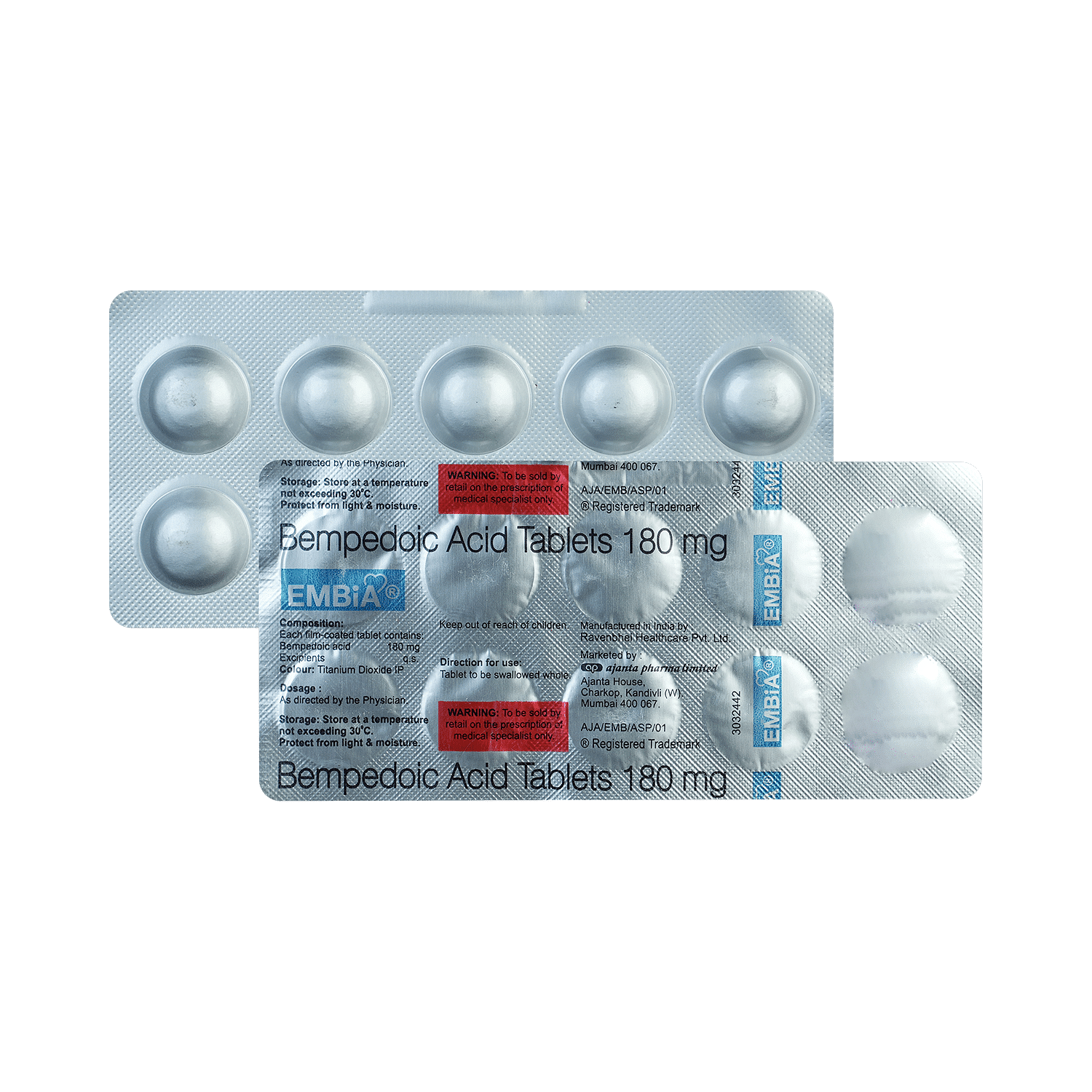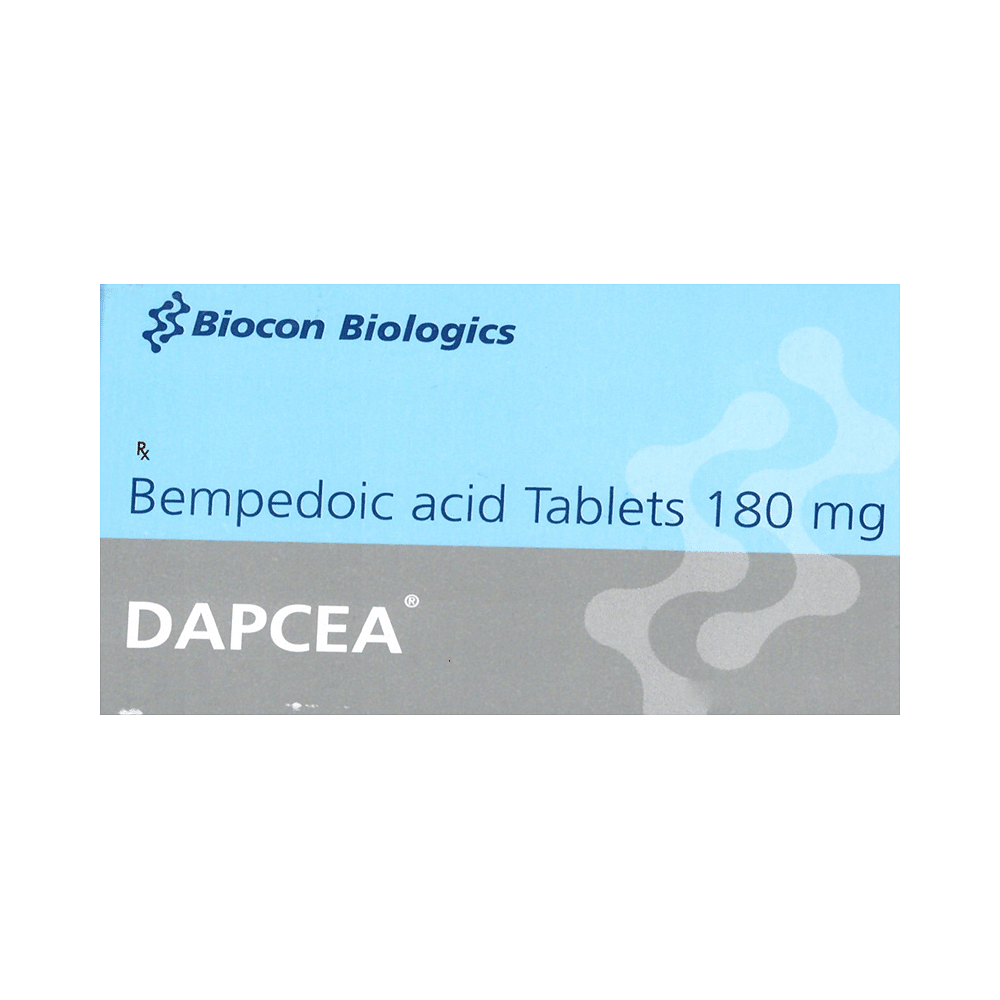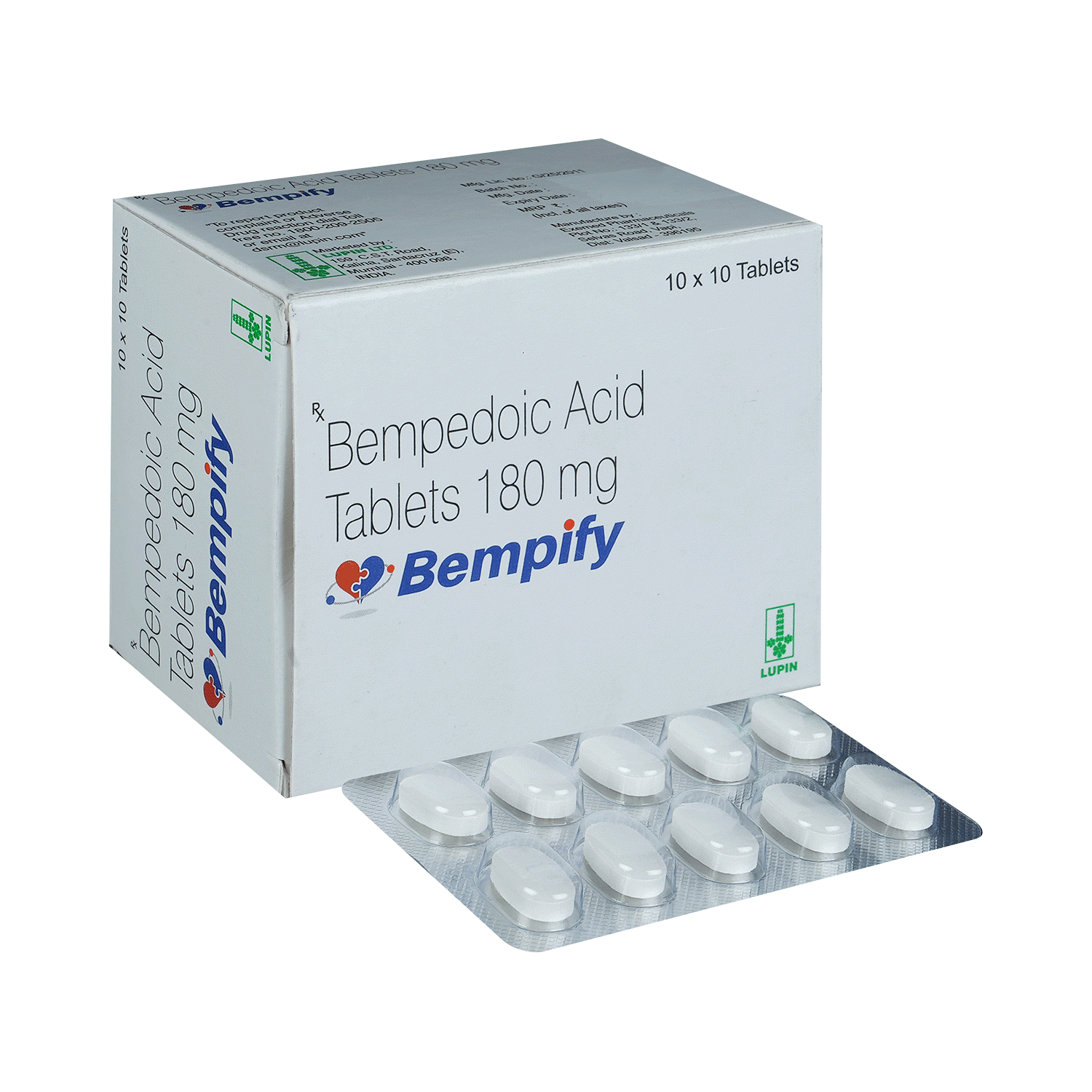
Xapcea 180mg Tablet
Manufacturer
Biocon
Salt Composition
Bempedoic acid (180mg)
Key Information
Short Description
Xapcea 180mg Tablet is used to lower cholesterol and reduce the risk of heart disease.
Dosage Form
Tablet
Introduction
Xapcea 180mg Tablet is used to lower cholesterol and reduce the risk of heart disease. Cholesterol is a fatty substance that builds up in your blood vessels and causes narrowing, possibly leading to a heart attack or stroke.
Directions for Use
Take this medicine in the dose and duration as advised by your doctor. Swallow it as a whole. Do not chew, crush or break it. Xapcea 180mg Tablet may be taken with or without food but it is better to take it at a fixed time.
How it works
Xapcea 180mg Tablet works by blocking an enzyme (enzyme adenosine triphosphate-citrate lyase) that is required to make “bad” cholesterol (low-density lipoprotein) in the liver which results in lower levels of 'bad' cholesterol.
Quick Tips
Take Xapcea 180mg Tablet after a meal or with a snack to avoid gastrointestinal problems. Inform your doctor if you experience fatigue, muscle weakness, or muscle or joint pain. Your doctor may check your liver function before starting the treatment and regularly thereafter. Inform them if you notice signs of liver problems such as stomach pain, unusually dark urine, yellowing skin, or eyes. Lifestyle changes like a low-fat and salt diet, exercise, not smoking, and cutting down on the amount of alcohol you normally drink may help this medication work better.
Related Medicines

Bepofly Tablet

Bemdiff

Bempesta Tablet

Bempinorm Tablet

Embia 180mg Tablet

Dapcea Tablet

Bempify Tablet 180mg

Bempuless 180mg Tablet

Bemneo 180mg Tablet

Bemperon 180mg Tablet
Frequently asked questions
How long does it take for Xapcea 180mg Tablet to work?
In clinical studies, Xapcea 180mg Tablet has been shown to reduce LDL-cholesterol by 17-28% after a treatment period of 12 weeks.
Does Xapcea 180mg Tablet cause tiredness or fatigue?
Yes, tiredness and fatigue are potential side effects of this medicine. If you experience these symptoms along with chest pain or rapid heartbeat, seek medical attention immediately as they may indicate an emergency situation.
Can Xapcea 180mg Tablet affect liver function?
Xapcea 180mg Tablet can cause changes in liver enzymes in some individuals, although significant liver damage is rare. In most cases, these changes resolve or improve with continued treatment or after the discontinuation of therapy.
In what situations will a doctor not prescribe Xapcea 180mg Tablet?
A doctor may refrain from prescribing this medicine if you have had a history of tendon rupture due to the potential risk of further tendon damage. This includes symptoms such as pain, swelling, tears, and inflammation in tendons, particularly those affecting the arm, shoulder, or back of the ankle. Individuals over 60 years old or with kidney failure are also at higher risk.
How should I take Xapcea 180mg Tablet?
Take one tablet daily with or without food for as long as your doctor prescribes. Always follow their instructions and guidelines regarding medication intake.
What is LDL (bad) cholesterol?
LDL-cholesterol, also known as bad cholesterol, contributes to a buildup of cholesterol in the blood, leading to artery blockage and increased risk of heart attacks, strokes, and peripheral artery disease.
What is HDL (good) cholesterol?
HDL-cholesterol, or good cholesterol, carries excess cholesterol from your bloodstream to your liver for removal. This action helps reduce the risk of heart disease.
How can I check my cholesterol level?
Book a lipid profile test at an accredited laboratory. This test measures total cholesterol, LDL levels, HDL levels, triglycerides, and the ratio between cholesterol and HDL. Before giving your blood sample, you may need to fast for 10-12 hours.
What is a normal cholesterol level in a blood test?
Your total cholesterol level should be between 125-200 mg/dL, LDL levels should be less than 100 mg/dL, and HDL levels should be 40 mg/dL or higher.
What happens if I have high cholesterol?
High cholesterol builds up on artery walls, causing them to narrow. This reduces blood flow to the heart and can lead to a heart attack or stroke.
How can lifestyle changes help improve the effectiveness of Xapcea 180mg Tablet?
Along with taking this medicine, adopting a low-fat diet, exercising regularly, reducing body weight, and limiting alcohol consumption can enhance its efficacy in lowering cholesterol levels.


